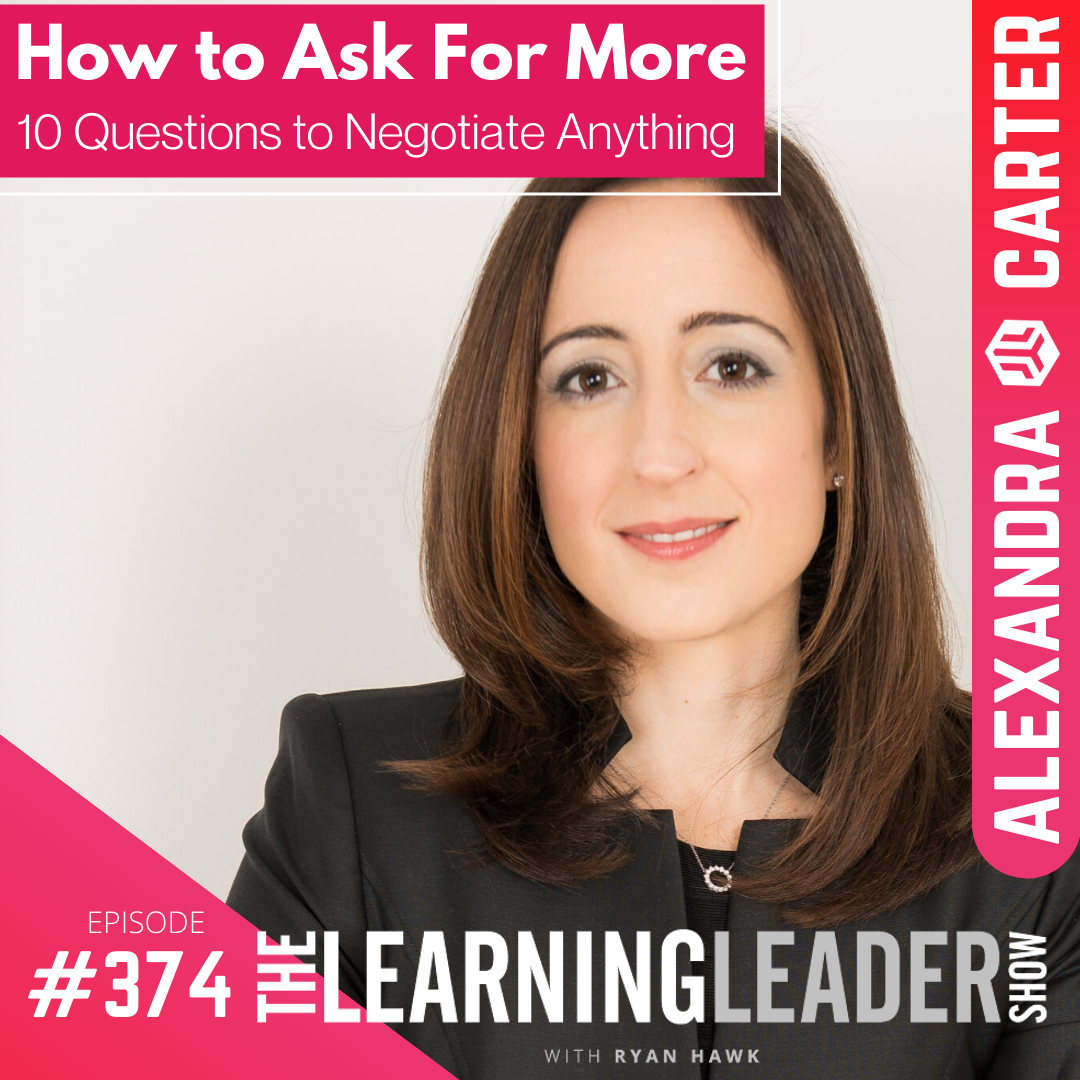Alexandra Carter is a Clinical Professor of Law and Director of the Mediation Clinic at Columbia Law School. She has spent the last eleven years helping thousands of people negotiate better, build relationships and reach their goals. In 2019, Alex was awarded the Columbia University Presidential Award for Outstanding Teaching, Columbia University’s highest teaching honor. She is a world-renowned negotiation trainer for groups and individuals from all over the world—including the United Nations, Fortune 100 companies, the U.S. government, foreign governments, not-for-profit organizations, universities and private law firms.
Alex received her Juris Doctor degree in 2003 from Columbia Law School. She won the Jane Marks Murphy Prize for her mediation work and the Lawrence S. Greenbaum Prize for oral advocacy. She graduated cum laude from Georgetown University.
To watch this conversation on YouTube, CLICK HERE.
FORBES recently called WELCOME TO MANAGEMENT, “the best leadership book of 2020.”
Be part of “Mindful Monday” — Text LEARNERS to 44222
Subscribe on iTunes or Stitcher Radio
The Learning Leader Show
- Excellent leaders have a beginner’s mindset
- What does a mediator do?
- They are a third person that helps people negotiate. The good ones don’t act like the smartest person in the room. They are learners and great listeners.
- What is negotiation?
- It is NOT a transaction over money.
- Negotiation is any conversation where you are steering a relationship Every conversation is like being in a kayak. Approach every conversation differently… With intention.
- “We make our world significant by the courage of our questions and by the depth of our answers.” – Carl Sagan
- The ultimate open ended question — “Tell Me…” Questions – an open question is like fishing with a net. A closed question is fishing with a pole. A great open question doesn’t have a question mark. “Tell me about your trip to India!”
- Change your WHY questions to WHAT questions…Rather than ask “Why haven’t I been able to… Turn that around to “What has made this challenging for me?” Move from a place of blame to curiosity.
- How to handle a PDP (performance development plan) meeting? How to ask for a raise?
- Recruit your manager to be on your side. Share your goals with them, bring them along with you… Connect with your manager. Talk about the future and how you can work together. Ask open ended questions to learn more about the needs of the business. Tie your money request to your production.
- Use “I + We” statements – Share how your work benefits the company.
- Your asks should be:
- Optimistic
- Specific
- Justifiable
- Research suggests that women hold themselves to perfectionist standards
- As a boss: Invest in top performers, mentor people, empower them, unleash them
- What do you need? 2 buckets
- Tangibles – touch, see, count
- Intangibles – Values, freedom, acknowledgement
- Questions to ask yourself:
- What would progress look like?
- What do I feel? Grapple with your feelings so that they don’t control you
- How have I handled this successfully in the past? Ask yourself about prior success. Write down your answer. It’s a “power prime.”
- Questions to ask:
- The first 5 questions are for your side- The Mirror: What’s the problem I want to solve? What do I need?, What do I feel?, How have I handled this successfully in the past?, What’s the first step?
- Then, the second 5 questions are for your opposite number: The Window: Tell me?, What do you need?, What are your concerns?, How have you handled this successfully in the past? What’s the first step?
- The five, best open-ended questions to ask in each part seek to identify and define the following: (1) the problem/goal; (2) needs; (3) feelings/concerns; (4) previous success; and (5) the first step. And that the answers to these important questions can help steer conversations, relationships, and negotiations that will increase the likelihood of a desired negotiation destination.
- “The Mirror,” in that knowing oneself by spending the time it takes to honestly ponder, reflect, and journal one’s personal thoughts, feelings, expectations, and dreams to answer those five questions, in an attempt to not only improve one’s skills in formal negotiations, but to also navigate the relationships in life’s journey.
- Here is WHY joining a Learning Leader Circle is a good idea…
Resources:
- Read: WELCOME TO MANAGEMENT
- Be part of “Mindful Monday” — Text LEARNERS to 44222
- Read: Ask For More
- Connect with me on LinkedIn
- Join our Facebook Group: The Learning Leader Community
- To Follow Me on Twitter: @RyanHawk12
More Learning:
Episode 078: Kat Cole – From Hooters Waitress To President of Cinnabon
Episode 216: Jim Collins — How To Go From Good To Great
Episode #300: AJ & Keith Hawk – How To Instill Work Ethic & Curiosity In Your Children
Episode #303: General Stanley McChrystal – The New Definition Of Leadership


[…] Alexandra Carter on the Learning Leader Show, Episode #374 […]
[…] on negotiations. John also introduced me to a podcast called, Learning Leaders with Ryan Hawk. Ryan’s podcast with Alex Carter was what drew me to buy the […]